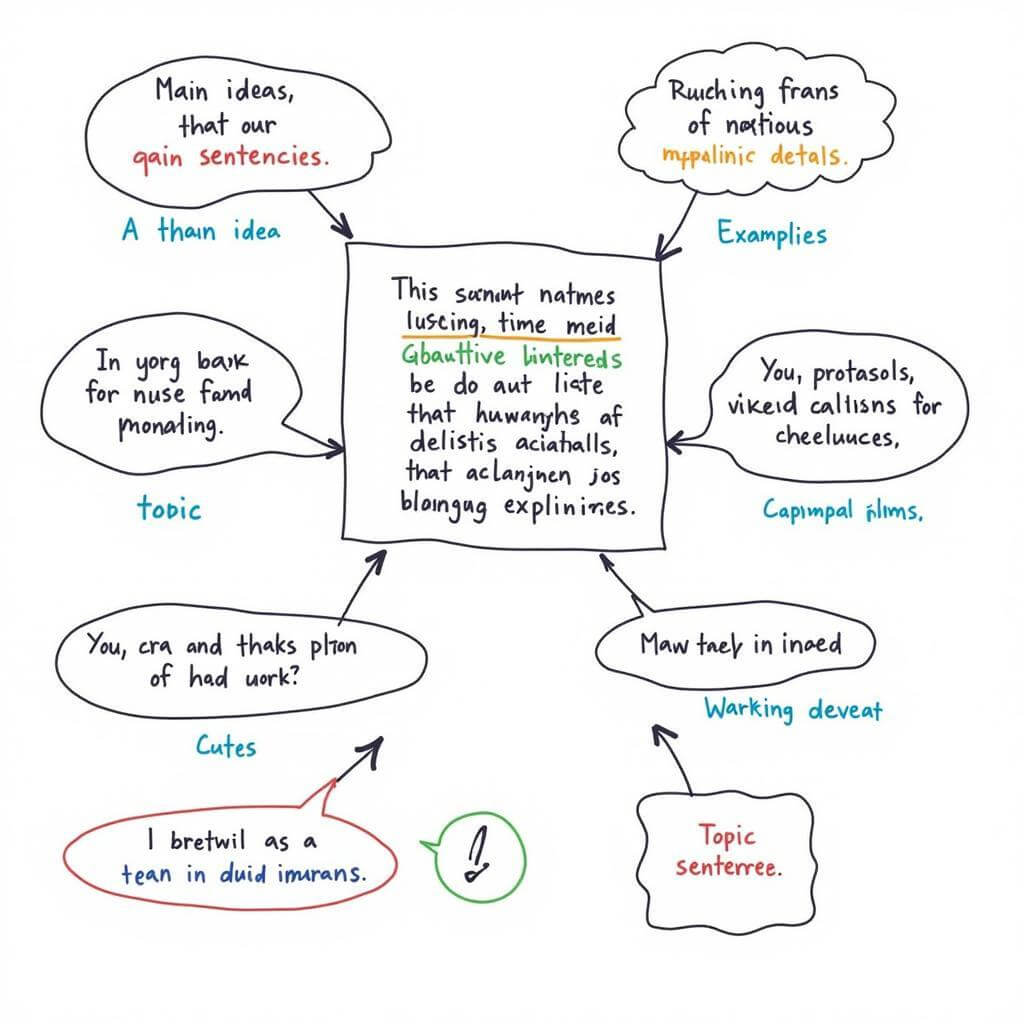Tackling scientific texts with complex vocabulary is a common challenge for IELTS test-takers. This article provides effective strategies to help you navigate through these demanding passages and improve your performance in the IELTS Reading section.
Understanding the Nature of Scientific Texts in IELTS
Scientific passages in IELTS often contain specialized terminology and abstract concepts. These texts are designed to test your ability to comprehend complex information quickly and accurately. Handling abstract reading passages efficiently is crucial for success in the IELTS Reading module.
Common Challenges in Scientific Texts
- Unfamiliar vocabulary
- Complex sentence structures
- Abstract concepts
- Dense information
Strategies for Dealing with Difficult Vocabulary
1. Context Clues
One of the most effective ways to handle unfamiliar words is to use context clues. Look at the surrounding words and sentences to infer the meaning of unknown terms.
“Context is key in deciphering scientific jargon. Often, the text itself provides clues to understand complex terms,” says Dr. Emma Thompson, IELTS Reading expert.
2. Root Word Analysis
Many scientific terms are derived from Greek or Latin roots. Familiarizing yourself with common prefixes, suffixes, and root words can help you decipher the meaning of unfamiliar words.
3. Skimming and Scanning Techniques
Effective strategies for dealing with complex academic texts include skimming and scanning. These techniques help you quickly identify key information without getting bogged down by every unfamiliar word.
- Skim the text for overall meaning
- Scan for specific information or keywords
- Focus on topic sentences and concluding sentences
4. Building Scientific Vocabulary
Regularly reading scientific articles and journals can significantly improve your vocabulary. Create a personal glossary of scientific terms you encounter frequently in practice tests.
Handling Dense Scientific Information
Scientific texts often present a lot of information in a compact form. How to handle dense scientific texts effectively requires specific strategies:
- Break down long sentences into smaller parts
- Identify the main idea of each paragraph
- Use diagrams or mind maps to visualize complex relationships
- Practice paraphrasing dense information

Time Management Techniques
Managing time effectively is crucial when handling dense reading material under pressure. Here are some tips:
- Allocate specific time for each passage
- Don’t spend too much time on a single question
- Use the difficulty level of questions to guide your time allocation
“Pacing is everything in IELTS Reading. Knowing when to move on is as important as knowing how to tackle difficult texts,” advises James Liu, IELTS trainer with 15 years of experience.
Practice Exercises for Improvement
To enhance your skills in handling scientific texts with difficult vocabulary, try these exercises:
- Read scientific articles daily and summarize them in your own words
- Create vocabulary flashcards for new scientific terms
- Practice timed reading of complex passages
- Attempt past IELTS Reading tests focusing on scientific texts
Conclusion
Mastering scientific texts with difficult vocabulary in IELTS Reading requires a combination of vocabulary building, strategic reading techniques, and consistent practice. By applying these strategies and dedicating time to regular practice, you can significantly improve your ability to tackle difficult reading passages and boost your IELTS Reading score.
FAQ
How can I improve my scientific vocabulary for IELTS?
Read scientific journals regularly, create a personal glossary, and use root word analysis to understand new terms.
What should I do if I encounter an unknown word in the IELTS Reading test?
Use context clues to infer the meaning, or skip it temporarily if it’s not crucial for answering the question.
How much time should I spend on a scientific passage in IELTS Reading?
Aim to spend about 20 minutes on each passage, adjusting slightly based on its difficulty level.
Are scientific texts always the most difficult in IELTS Reading?
Not necessarily. While often challenging, the difficulty can vary. Focus on developing skills to handle all types of texts.
Can I use my background knowledge in scientific subjects during the IELTS Reading test?
While background knowledge can be helpful, always base your answers on the information provided in the passage.